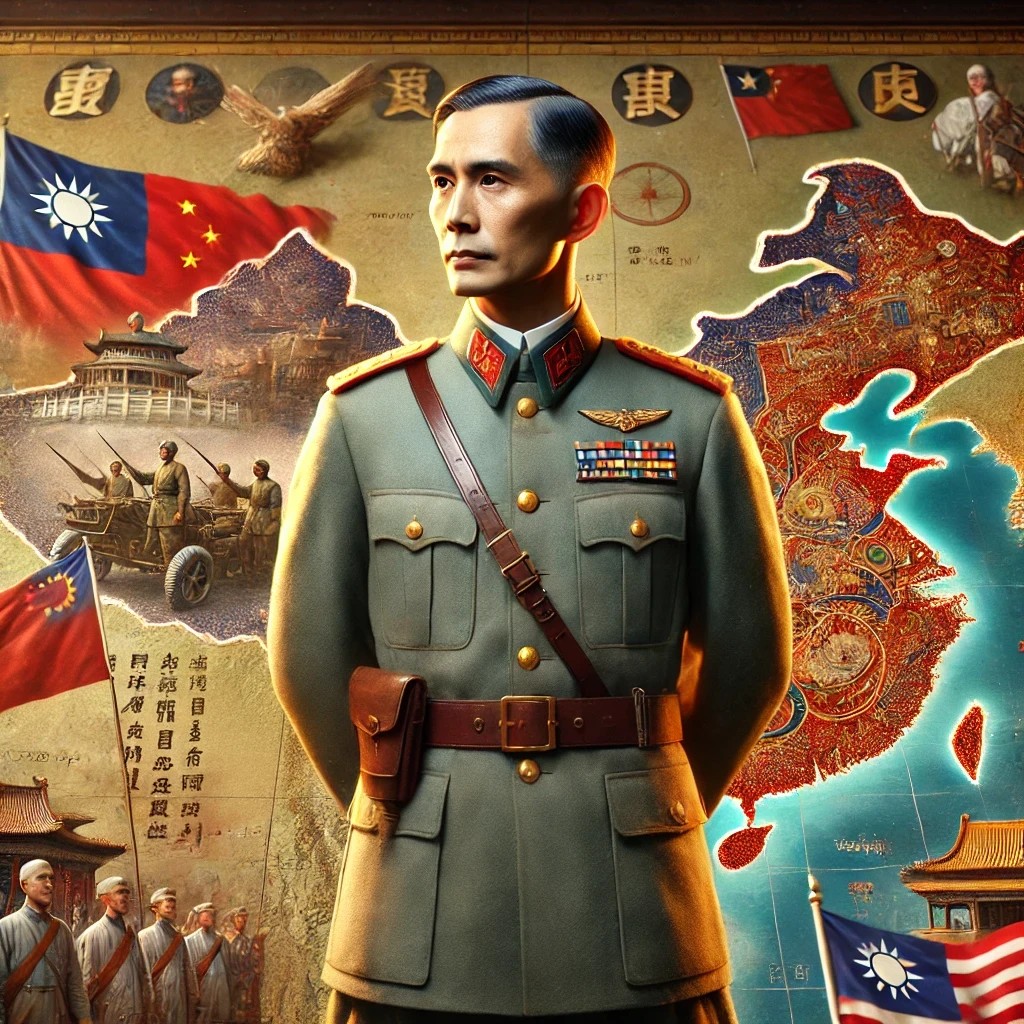Chiang Kai Shek (1887 - 1975)
The Man of Steel of Republican China

From his struggle against warlords to his rivalry with Mao Zedong, Chiang Kai-shek was a central figure in 20th century Chinese history. Celebrated as a unifier and strategist, but also criticised for his cruelty and the massacres he ordered, his leadership marked China's history from the Republican era to the emergence of Taiwan as a nationalist stronghold - Image generated with AI
Chiang Kai-shek was one of the most famous and controversial protagonists of contemporary Chinese history. Born in 1887 into a family of modest origins in Zhejiang Province, he became famous for quickly climbing the hierarchies of the Kuomintang (the Chinese Nationalist Party), which, in the aftermath of the Xinhai Revolution (which led to the end of the imperial Qing dynasty), began to play an increasingly central role in the political life of republican China.
After the death of the republican leader Sun Yat-sen, Chiang took his place as the main leader of China's republican forces, but inherited a China in dire straits. Warlords ruled the roost and republican forces were divided and fragmented by internal conflicts that made the resilience and progress of the Chinese state very fragile. In 1925, Chiang Kai-Shek led a vast military expedition into North China to defeat the rebellious warlords and unite the country once again under one leadership. However, Chiang's reunification met with a strong political opponent: Mao Zedong and the nascent Chinese Communist Party.
One of the most ruthless episodes in Chiang Kai-shek's history has to do with Mao's communists. In 1927, Nationalist troops, who had formed a fragile alliance with the Communists, betrayed the latter and engaged in the systematic massacre of thousands of Chinese Communists loyal to Mao, in what has gone down in history as the Shanghai Massacre. However, a new fragile alliance between the Nationalist Party and the communists was renewed with the start of the Sino-Japanese War, which ravaged China from 1937 to 1945 bringing atrocious destruction.
After the defeat of the Japanese in 1945, the bloody conflict between nationalists and communists resumed and was finally won by Mao's communists, who forced Chiang Kai-shek and his nationalists to retreat forever to the island of Taiwan, where the nationalist government survived until the death of its leader in 1975. Chiang Kai-Shek is still remembered ambivalently: for some he was a saviour, for others a ferocious dictator.
Mario Sabattini, Storia della Cina. Laterza, Roma, 2005.
Simone Pieranni, La Cina nuova, Laterza, Roma, 2021.
2025-06-08
Francesco Toniatti
